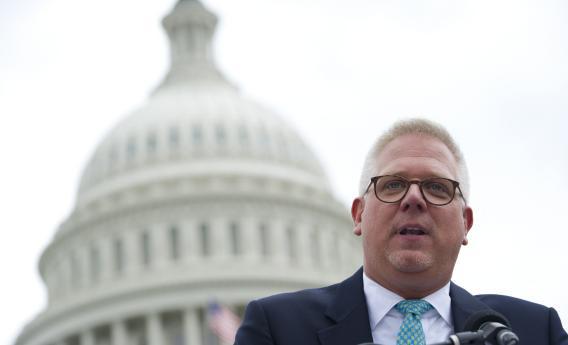Ultron, as enlightened readers will already know, is a robotic archvillain who torments the Avengers. When the team defeats him, he does not die. He reconstructs himself, eventually, having eliminated whatever weakness it was that allowed him to lose.
The IRS Scandal operates the same way. As Emma Roller and I found out from yesterday’s Tea Party rally, staged in part to get the scandal back into the headlines (really, the only thing that had ejected it was the hotter, newer NSA story), there has been no impact from the fizzle of the “Obama knew?” theory. Democrats outplayed Republicans on the Oversight Committee and leaked transcripts of IRS agent interviews that absolved the administration from a role in the “Tea Party targeting.” The onus was on the IRS; not a great Obama scandal, there.
So Republicans are moving the discussion on to another theory, one that’s been in the ether since 2011. Some Republican donors say they were audited after having never been hassled by the IRS. Were those audits ordered by the Obama administration? Boom—new storyline, new reason to ask for an independent counsel.
My colleague John Dickerson has argued that the GOP has a ton of running room because this story presents so many angles. Doesn’t matter if a few of them fall apart. I tend to agree, because there’s a new theory every day. The latest comes from James Pethokoukis, who asks whether we should put an asterisk next to Barack Obama’s 2012 win because he’d suppressed the Tea Party.
Let’s say Tea Party groups had continued to grow at the pace seen in 2009 and 2010. And let’s further say their impact on the 2012 vote been similar to that seen in 2010. A new paper co-authored by AEI’s Stan Veuger estimates the grass-roots movement generated 3 million to 6 million additional votes in House races in the midterms. The 2012 result would have seen as many as 5 million to 8.5 million additional GOP votes versus a President Obama victory margin of 5 million votes.
OK, starting with the general agreement that the IRS shouldn’t have leaned so hard on the Tea Party, let’s further agree that this is madness. Leave aside the fact that most real political activity credited to the “Tea Party” was organized by groups—FreedomWorks, Americans for Prosperity—that have had favorable tax status for years. From January 2009 to November 2010, the Tea Party went from zero to more than a thousand groups. From December 2010 to November 2012, the movement was growing less popular for reasons that had nothing to do with individual groups’ tax status. A November 2010 Quinnipiac poll gave the Tea Party a mildly negative 34-38 favorable rating; a year later this had fallen to a 29-42 favorable rating. Politics and life had intervened, and the “Tea Party’s” role in the debt limit showdown (i.e., starting the showdown in the first place) was wildly unpopular. Simultaneously, a slowly growing economy was making the president more popular.
So why assume that the movement would have continued to grow at its 2009-2010 pace even after the environment for its growth had been radically altered? Look at it another way. The civil rights movement was popular in 1964 and 1965. It won. It took on causes less popular than voting rights, like equal housing. Its popularity decreased. While 1964 was a very good election year for progressives, 1966 was a massive setback.
The point? We’re not even close to the end of IRS scandal-oriented theories of liberal treachery.
